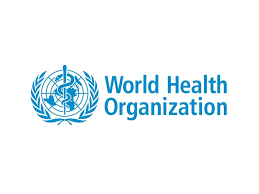
National preparedness and response: A Consultative meeting on JEE and SPAR to incorporate the lessons learnt from COVID-19 Pandemic
March 9, 2021
Meeting
National preparedness and response: A Consultative meeting on JEE and SPAR to incorporate the lessons learnt from COVID-19 Pandemic
Date
9 and 10 March 2021
Duration
3h30 min (each day)
Day 1
12h to 15h30
Day 2
12h to 15h30
Background
Since the International Health Regulations (2005) (IHR) came into force in 2007, WHO has worked with Member States and partners to assess and develop core capacities for preparedness and response to health emergencies. In this regard, Member States have been supported in the implementation of assessment, evaluation and monitoring of their IHR capacities through instruments such as the Joint External Evaluation (JEE) and the State Party Annual Reporting (SPAR) tools as part of the IHR Monitoring and Evaluation Framework (IHRMEF). These assessments have enabled Member States to identify gaps and strengths in national preparedness capacities for public health emergencies and have contributed to better informed planning and capacity development for enhanced preparedness for and effective response to public health emergencies.
The ongoing COVID-19 pandemic shows that gaps exist in capacities across many nations. Furthermore, the pandemic has also demonstrated the critical role of non-health sectors in emergency preparedness and response. It is therefore important to re-examine preparedness capacity assessment tools, approaches and mechanisms for assessment and reporting as per the interim report of the IHR Review Committee (RC). This has been further underscored by the Independent Oversight and Advisory Committee for the WHO Health Emergencies Programme (IOAC) report that stated that JEE and other existing tools should be reviewed based on the lessons learned during the COVID-19 pandemic.
In this regard, WHO is organizing a consultative Member State meeting to review assessment tools in follow up to the recommendations of the RC and the IOAC, and related issues emerging from COVID-19. Two Member States from each region will be invited to participate in the meeting.
Objectives of the meeting
The objectives of the proposed consultative meeting are to:
- Review IHR capacity assessment and monitoring tools based on lessons learnt during the COVID-19 pandemic with a focus on the JEE and SPAR, and
- Agree on key areas to strengthen existing tools and a roadmap for implementation
- Review of country preparedness and response to COVID-19 and the role of assessment tools, including sharing of experiences and lessons learnt by countries and regions
- Review of preliminary findings of the ongoing survey of SPAR indicators based on COVID-19 experience.
- Discussion on alignment of JEE and SPAR, and linkages with other key strategies / tools such as technical/programme area specific tools
Expected outcomes
- Based on the meeting proceedings, expected outcomes include:
- Recommendations of specific improvements that should made to assessment tools (i.e. JEE and SPAR) based on lessons from COVID-19
- Documentation and publications on emergency preparedness and response based on COVID-19 experiences
- Roadmap for implementing the recommendations
Organizer
World Health Organization (WHO)
|
|
Topics |
|
12.00-12:15 |
Session 1: Opening
|
|
12.15-13.00 |
Session 2: Overview of assessment of preparedness and COVID-19 response, and preliminary SPAR survey findings
Presentation:
Objective: This session will provide an overview of assessment of preparedness and COVID-19 response, as well as preliminary findings of the SPAR survey. |
|
13.00-14:15 |
Session 3: Assessment of preparedness and COVID-19 response – Lessons from countries and the regions
Presentations:
Objective: This session will identify lessons from countries and regions that should be considered for incorporation into future assessments of preparedness based on COVID-19 response experiences. |
|
14.15-14:25 |
Coffee Break |
|
14:25-15:30 |
Session 3: Assessment of preparedness and COVID-19 response – Lessons from countries and the regions (continued)
Presentations:
|
|
15:30 |
End of Day 1 |
|
|
Topics |
|
12.00-12:15 |
Session 1: Opening
|
|
12.15-13.30 |
Session 2: Assessment of preparedness and Covid-19 response: Perspectives from partners and lead WHO technical units
Presentations:
Objective: This session will identify lessons from COVID-19 response to be incorporated into future assessments of preparedness from the perspective of lead technical units and from partners experiences |
|
13.30-15.00 |
Session 3: Discussion of recommendations for improvement of assessment of preparedness
Objective: Participants will discuss lessons from COVID-19 response for incorporation into future assessments of preparedness and recommendations for improvement |
|
15:00-15:30 |
Session 4: Summary of the recommended improvements of assessment of preparedness and consensus on roadmap
Objective: Participants will discuss and agree on the recommended changes to assessment of preparedness and roadmap for implementing the recommendations |
|
15:30 |
End of Day 2 |